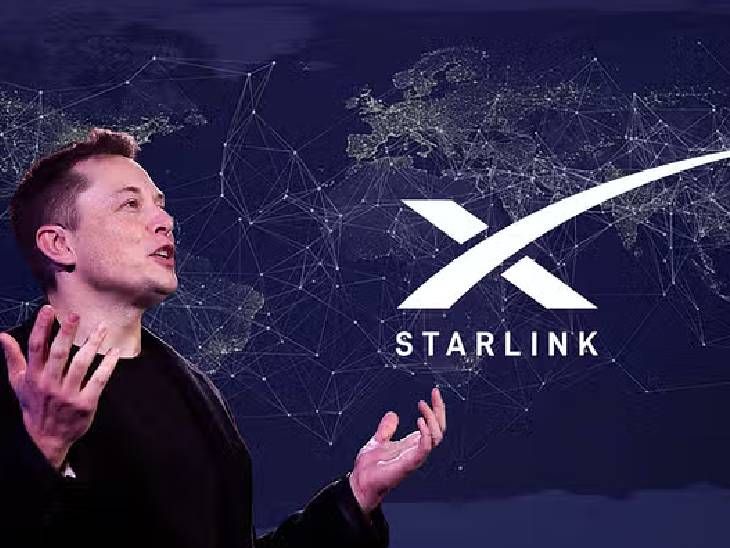The government has decided to administratively allocate satellite communications (Satcom) spectrum. Earlier, Reliance Chairman Mukesh Ambani and Airtel Chairman Sunil Bharti Mittal had asked the government to allocate spectrum through auction.
Following this government decision, Starlink and SpaceX owner Elon Musk promised to provide satellite broadband service in India. He gave this information in his post X. Previously, Musk opposed the advice of the two Indian businessmen.
Scindia said – Government will decide cost of spectrum
Communication Minister Jyotiraditya Scindia on Tuesday said allocation of spectrum for satellite services would be done administratively and not through auction and the cost would also be decided by the government.
Bharti Airtel-backed Eutelsat OneWeb is also gearing up to launch satellite communications services in India soon.
Starlink can provide satellite broadband service anywhere in the world
Starlink operates a global network of low Earth orbit (LEO) satellites and provides space-based broadband connectivity to many countries. The company has the capability to deliver satellite broadband service directly to smartphones anywhere in the world.
Starlink benefits from government decision
Starlink will have an easier time obtaining a GMPCS (Global Mobile Personal Communications by Satellite Services) license from the Indian authorities. With this license, the company will be able to start its satellite broadband services in India.
GMPCS will be the third company to obtain the license
Starlink is a subsidiary of SpaceX. After obtaining the license, it will be able to provide satellite broadband, voice and messaging services to individuals and organizations in India. If approved, Starlink will be the third company to receive a GMPCS license.
Airtel and Jio have this license
Earlier, Bharti Airtel-backed OneWeb and Reliance Jio obtained a license to provide satellite services. On the other hand, Jeff Bezos’ company Amazon has also applied for a license from the Ministry of Telecommunications, but the government has not yet discussed it.
IN-SPACE approval is also required for the Services.
Satcom service providers must also get approval from the autonomous space regulator Indian Space Regulator India (IN-SPACe). After that, companies will have to wait for the spectrum to be allocated by the DoT.
The government is awaiting recommendations from the Telecom Regulatory Authority of India (TRAI) on how to allocate spectrum, or radio frequencies, for satellite services in the country. However, recommendations are unlikely to be made until TRAI finds a new chairman.
How will the Internet reach you via satellites?
Satellites make it possible to broadcast Internet coverage from any part of the Earth. The satellite network provides users with high-speed, low-latency Internet coverage. Latency refers to the time it takes to transmit data from one point to another. The Starlink kit consists of a Starlink dish, a Wi-Fi router, power cables and a mounting tripod. For high-speed internet, the dish must be kept in the open air. The Starlink app is available on iOS and Android, which takes care of configuration and monitoring.Gold at an all-time high of ₹76,553: It has become costlier by Rs 13,201 so far this year, it could go up to Rs 78,000 by the end of the year.1:26
share
Bajaj Auto posts ₹2,005 crore profit in July-September quarter: Revenue up 9% YoY, revenue up 22% to ₹13,127 crore; Stocks are up 129% in a year
share
MSP on wheat increased by ₹150, price by ₹2,425 quintals: ₹300 increase for oilseeds; Increase in gram, lentils, barley and safflower also1:05
share
Sensex fell by 318 points: It closed at 81,501, Nifty also lost 86 points; Computer and auto stocks fell the most
share

